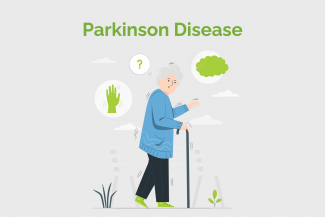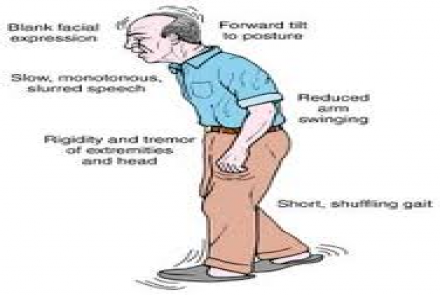
The loss of production of the chemical dopamine due to nerve degeneration in the brain (esp. the substania nigra) is the key component for the inception of this movement disorder. Dopamine is the messenger that is responsible for coordinating movement, balance and the reward system with other nerve and muscle cells.
As of now, we do not know the exact cause of the loss of nerve cells that leads to Parkinson’s disease. Researchers believe it may be due to genetic or environmental factors, oxidative damage/neuroinflammation, and accelerated aging. Parkinson’s disease is seen to run in family members due to faulty genes but no concrete gene pathway has been identified yet. A mutated gene was discovered in 2005 which is now believed to cause 5% of inherited cases. The environment may play a role. People exposed to certain chemical and heavy metals due to occupational hazards have a higher incidence of this disease.
Who is at risk of developing Parkinson’s disease?
• People above the age of 60 years
• Men more than women
• People who have a family history
• People exposed over long periods to certain chemicals, toxins or pesticides (used in farming to kill weeds and fungus)
• People exposed to heavy metals such as lead, mercury and manganese in steel factories and other industries.











